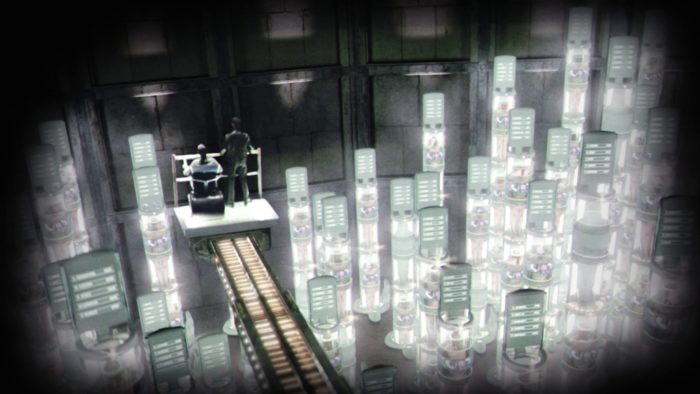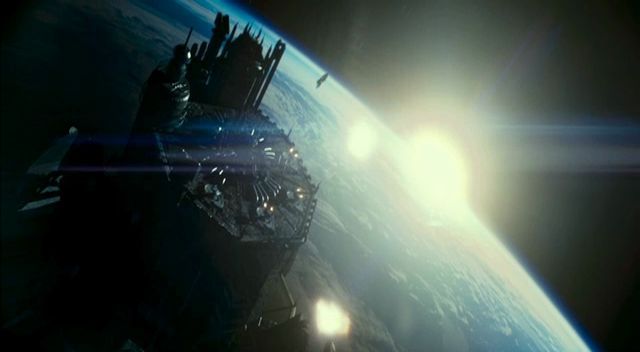Hard Time
Every week, I go to jail. For the past two years, I’ve been teaching classes at the county detention center as a volunteer, first as an ESL teacher and now in creative writing. It has been an incredible experience that has taught me a lot and also introduced me to some fantastic writers. The deck is stacked against these guys but through their writings, I can see that many of them truly desire to set their life straight.

Image copyright 20th Century Fox
As with any real life/entertainment contrast, the real world of incarceration doesn’t quite match up with what we see on screen when it comes to prisons and jails. Prison life is unfortunately a prominent fixture in American society and we see this reflected in the large body of movies and TV shows set behind bars. While I’ve only seen the inside of a small county jail, a far cry from the supermax fortresses that fictional anti-heroes regularly escape from, I can tell you that there is nothing cool or glamorous or exciting about doing time.
Of course, that doesn’t stop Hollywood. Aside from gritty modern-day prison fare (Orange is the New Black, Shot Caller, Oz), there is an entire subgenre of futuristic incarceration, most of which is violent and nihilistic (Death Race, The Running Man, Cube, Lockout, etc.) One of my favorite science fiction movies of any genre is The Chronicles of Riddick (its predecessor Pitch Black and sequel Riddick were all right, but The Chronicles of Riddick has an epic scope that the other movies don’t explore). Vin Diesel’s titular character is quite an interesting creation, toeing the line between hero and villain. I can’t say that I want him to get away scot-free, but since he dispatches folks worse than he is, my conscience is less conflicted.
Despite the sensational nature of these stories, the reality is that being behind bars is no picnic. As the so-called “prison industrial complex” expands, so do the challenges of any growing industry. Could the moon one day become the dumping ground for society’s undesirables, like in Men in Black 3? Will convicts be stored in giant warehouses with their minds in stasis as we saw in Minority Report? While the nature of incarceration may be intriguing, even more interesting (and terrifying) is why someone could be locked up in the future. Minority Report delved into the notion of “pre-crime,” while numerous Orwellian dystopias depict an all-powerful god-like State that imprisons anyone who dares question their masters (my particular favorite is Equilibrium).

Image copyright Open Road Films
There is no doubt that the world is becoming increasingly hostile towards the proclamation of the Gospel, even in our Judeo-Christian cultures. I’ve never been one to scream “The sky is falling!” when it comes to our religious liberties, but one look at the news shows us the direction in which we are heading. One day, the world is going to decide that Christians are a problem that needs to be dealt with. It’s not inconceivable that Christians could be rounded up into camps or having entire cities blockaded. Seeing all of the futuristic possibilities for crime and punishment, it’s easy to become fearful, especially for our children. Yet God promises repeatedly in His word to never leave us nor forsake us, and we are given many examples of brave Christians who held onto their faith through harsh prison sentences (and never tried to escape). Humanity continuously invents new ways to make life miserable for itself, and while life behind bars may one day become a reality for us, we must trust in God’s grace and sovereignty.







































I’ve read Aleksandr Solzhenitsyn’s Gulag Archipelago and One Day in the Life of Ivan Denisovitch. It’s instructional to realize that during Stalin’s time, a large percentage of Evangelical Christians in the Soviet Union were incarcerated basically for “just because” reasons. (The USSR had around two million Baptists at the time, who were the primary targets for the anti-evangelical persecution at that time.) Yeah, one thing history as a subject does show that if something has happened once, it can happen again.
Good for you for volunteering at the local jail, by the way. Prisoners could use help (I visited a juvenile detention center for a number of years).
So how is your local county jail different from what you would have expected it to be?
I suppose I had expected it to be more tense, like anyone could get shanked at any moment. The truth is, it feels more like a hospital than anything. A bunch of meek and despondent people shuffling here or there. Most of the people I interact with are low-level offenders, though I do meet with some guys houses in the pods for violent criminals, but I don’t feel any danger at all. We laugh and joke and talk about TV shows and books like we are at a barbecue. I never forget that I’m inside a jail but it doesn’t feel like it’s portrayed on TV, though I would imagine that prison would be a bit different (or perhaps not).
IIRC, America has more people in prison than even Russia or China, the supposed totalitarian police states. Y’all we ARE the dystopia in some respects.
There’s an interesting discussion to be had about the purpose of imprisonment. Is it for punishment, or is it for rehabilitation? America as a culture pretty firmly believes in the punishment end of the scale. And it’s a broken system. Europe has developed a more rehabilitative approach and sees recidivism rates drop noticeably, whereas the American system is more like a revolving door.
Not to mention we use prison as a substitute for the mental health care infrastructure we don’t have. [[[Your periodic subliminal message about M4A]]]
Well, people like Mark and Travis seem to have been involved in the rehabilitation end. I have a cousin that is involved in prison ministry too. And I think prisons should be for rehabilitation AND containment(like, if someone has committed dangerous crimes over and over, they need to stay in jail until they’re proven not to be a threat.)
But dystopia isn’t just a matter of numbers. If one nation jails people primarily because they dared to speak negatively of the government or something, that government is probably a lot worse than one that primarily jails people for theft, rape and murder. Russia also has a much smaller population, so although prison numbers aren’t a direct correlation to nation population, it is a factor. It isn’t surprising to hear that Russia has less prisoners than us. But if a much more populous nation has less prisoners, that could be a bad sign in SOME cases. Like, maybe people are too afraid to do anything because their government is so extreme.
I’m definitely not saying America is perfect or better in every way. And we definitely have a lot to fix, both in and out of our prisons. I’m just saying that prison population isn’t the sole determinant of which government is better, and even if America puts an emphasis on punishment, there are still lots of people in it that want to rehabilitate prisoners in a positive way.
Rehabilitation is NORMALLY desirable in a good society, though in a tyrannical one it could have a horrible connotation of arresting anyone that doesn’t have the mindset and behaviors the government wants and using jail to ‘reeducate’ them.
IIRC, we have the edge for sheer numbers and also percentage of total population.
Poverty is criminalized here in a lot of ways. Certain parties want to deal with the homeless by putting them in camps.
More poor people get jailed for crimes the richer skate on, like weed use.
100% true!
Are you counting the Uyghurs in those numbers?
Welp, the stats I looked at were before we started detaining Guatemalans, too, so we still probably have the edge.